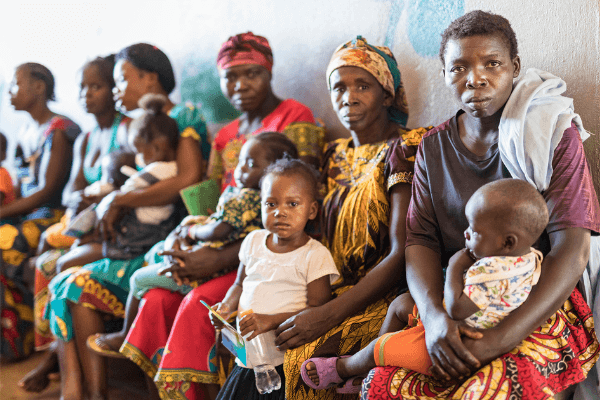Insights into the Daily Life of Cap Anamur’s Hospital in Bossembélé
One of our main tasks in the Central African Republic is the construction and expansion of the hospital complex in Bossembélé. We have been steadily expanding this hospital since 2013 and provide medicines and important equipment.
Currently, doctors Anna and Patricia are on assignment for Cap Anamur at the hospital. Anna has been in the Central African Republic since the beginning of April and has brought material from Germany for the newly introduced ventilator. These are masks for newborns and infants.

At the beginning of this year, the hospital optimized the care of its patients by installing a ventilator.
The first ventilator was provided to our hospital under the government COVID program of the Central African Republic,. This will improve the treatment of pneumonia, for example, in the future. Since the staff was not familiar with the use of the device, our project team member Dr. Janika Briegel, an internist from Herrenberg, extended her assignment by one month in January to train the staff accordingly.
Together with the physician Patricia Begas, she gave the operating room staff and the nursing staff a thorough introduction to the appropriate use of the equipment.
With the masks for infants and newborns, it was possible very recently to provide appropriate ventilation for a newborn who was delivered by emergency c-section. In addition to these emergency obstetric missions, the hospital is currently busy with many cases of malnourished children and children with severe malaria.

Severe malaria occurs more often in children
Little Dieu-Levie was hospitalized with severe malaria. He was unconscious and severely dehydrated. The severity of the disease was manifested by severe seizures and impaired consciousness. For days our doctors fought for his survival. Only the administration of very strong medication was able to break the seizures and slowly showed improvement. Dieu-Levie slowly began eating and could very slowly move again.
Malaria remains one of the main causes of high child mortality in the Central African Republic. We are working hard to ensure that the population is made more aware and that, for example, mosquito nets are made available to many families.

Malnourished children have hardly any immunity and therefore fall ill more easily, for example, with malaria.
Therefore, we also have a consultation hour for malnourished children in the clinic. Currently, the cases of malnutrition are also piling up again in our hospital.
Two-year-old Cyriak arrived at Cap Anamur Hospital severely malnourished. He suffered from severe diarrhea and vomiting. He completely refused the intake of food. Only slowly did the little boy recover from being fed through a feeding tube. It was only after a week that he began to eat and move on his own again. After a two-week stay, he was able to be discharged and now continues to receive weekly care in our consultation hours for malnourished children.

